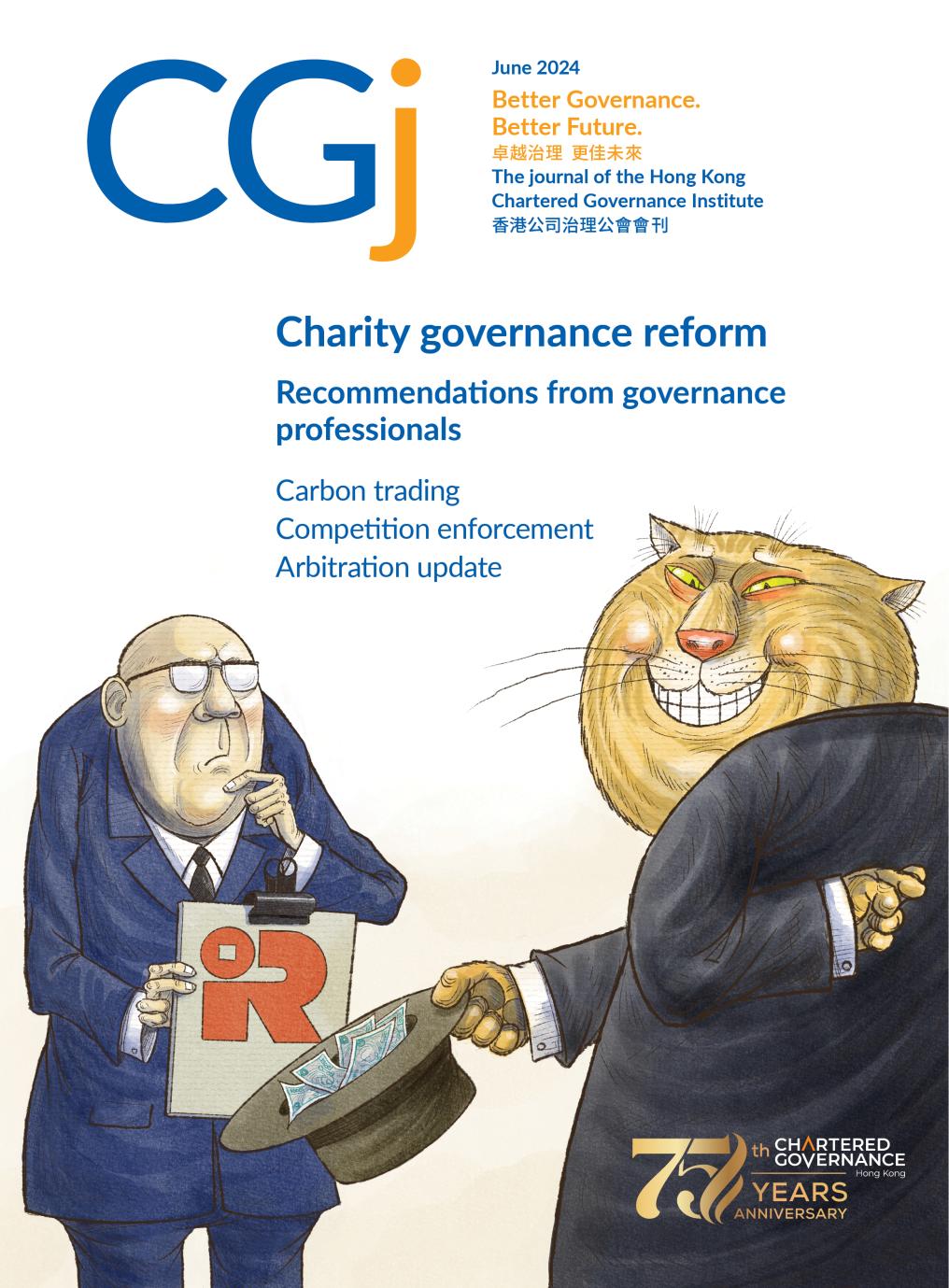
CPD – the relevance factor
This month’s journal is on the theme of the governance of non-government organisations (NGOs) – an area of practice that has tended to come under less regulatory supervision and scrutiny of governance standards in Hong Kong in comparison to say the UK, which has a charity commission. Our cover stories this month highlight the need for greater regulation of this sector and, given that imposing such a regulatory regime will take time, the need in the interim for a focus on effective governance controls in the management of Hong Kong’s NGOs.
In my message this month, I would like to say a few words about our annual signature event – the Annual Corporate and Regulatory Update (ACRU). This year’s ACRU was held on 7 June both online and at the Hong Kong Convention and Exhibition Centre (HKCEC), and made it more evident than ever that there is an ongoing need in the market for a direct dialogue between regulators and regulatees about the latest issues in compliance, governance and regulation. The forum helped clarify practitioners’ questions about the issues at the top of the governance and compliance agendas of organisations in Hong Kong, including, but not limited to, Hong Kong’s incoming climate-related disclosure regime, regtech and generative artificial intelligence, competition compliance, personal data breach notifications and ethical decision-making.
ACRU is at the core of our Institute’s ECPD programme. I mentioned in my welcoming address at this year’s event that our Institute has followed a unique approach to our members’ ongoing CPD requirements. Like most professional bodies, we impose a mandatory requirement for a minimum number of CPD hours annually.
Since 2017, our requirement has been that at least six hours have to be from our own ECPD training. The reason for this approach is that our training programme is specifically targeted at the core areas of practice of governance professionals to provide our members with unique thought leadership in practical applied governance. This is also in line with the existing practices of the overwhelming majority of our members who attend more than six hours of the Institute’s training. Ensuring that we stay up to date with these areas not only helps us maintain an appropriate level of knowledge and skill, but also provides a baseline quality assurance guarantee to the market.
ACRU, for all of the above reasons, has a special place in our professional development calendar and I would like to express my personal thanks, as well as the thanks of our Institute, to everyone who contributed to this year’s event. ACRU is the largest-scale event that our Institute organises and, as you would expect, is the collaborative achievement of many different parties. Thanks are due to the representatives of the six regulatory bodies who generously shared their knowledge and expertise as speakers at this year’s forum. Thanks are also due to the chairs of the seminar sessions, the sponsors of the event, our Institute’s Secretariat, the conference organiser and of course the participants who joined the dialogue in person at the HKCEC and online.
Finally, look out for a full review of ACRU 2024 in next month’s edition of this journal. In the meantime, one takeaway I would like to highlight is the key importance of the event itself. Today’s rapidly changing operating environment demands our constant attention and adaptation. In this context, events like ACRU are a very valuable resource helping to ensure that we remain fit for purpose in our roles as the governance and compliance experts in the organisations we serve.


